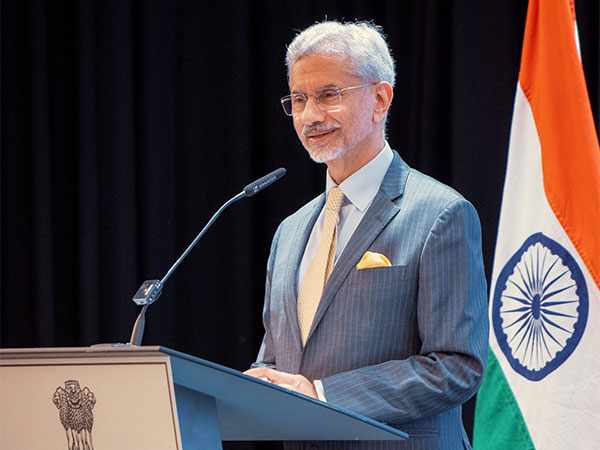Jaishankar and Manturov to Steer India-Russia Talks: Focus on Export Imbalance and $100 Billion Trade Target by 2030
To reach this target, the talks will likely cover a wide range of sectors, including energy, agriculture, manufacturing, technology, and services. Both countrie
- by B2B Desk 2024-11-11 11:45:28
In a significant move to bolster bilateral relations, Indian External Affairs Minister S. Jaishankar and Russian Deputy Prime Minister Denis Manturov are set to lead high-level talks aimed at addressing export imbalances and achieving an ambitious trade target of USD100 billion by 2030. This dialogue comes at a crucial juncture, as both nations seek to strengthen their economic partnership and explore new avenues for cooperation.
Addressing Export Imbalance
A key focus of the upcoming talks will be addressing the current export imbalance between India and Russia. Despite a robust trade relationship, there exists a notable disparity in the export-import dynamics. India primarily imports defense equipment, oil, and fertilizers from Russia, while its exports to Russia include pharmaceuticals, electronics, and textiles. By addressing these imbalances, the two countries aim to create a more equitable trade environment that benefits both sides.
Jaishankar and Manturov are expected to discuss measures to enhance market access for Indian goods in Russia and vice versa. This includes reducing tariffs, eliminating non-tariff barriers, and fostering greater collaboration in sectors where both countries have competitive advantages.
Ambitious Trade Target
One of the primary objectives of the discussions is to set a roadmap for achieving a bilateral trade target of USD100 billion by 2030. This ambitious goal underscores the commitment of both nations to deepen their economic ties and explore new opportunities for trade and investment.
To reach this target, the talks will likely cover a wide range of sectors, including energy, agriculture, manufacturing, technology, and services. Both countries are keen to leverage their respective strengths to create a synergistic trade relationship that supports sustainable economic growth.

Enhancing Energy Cooperation
Energy cooperation is expected to be a central theme of the discussions. Russia, a major global energy supplier, and India, one of the world's largest energy consumers, have a natural synergy in this sector. The talks may explore opportunities for long-term energy supply agreements, joint ventures in energy infrastructure, and collaboration on renewable energy projects.
Boosting Technological and Industrial Collaboration
Another area of focus will be boosting technological and industrial collaboration. With Russia's expertise in high-tech industries and India's growing prowess in information technology and innovation, there is significant potential for mutually beneficial partnerships. This could include joint research and development initiatives, technology transfer agreements, and collaboration in emerging fields such as artificial intelligence and cybersecurity.
Strengthening Defense Ties
The defense sector has long been a cornerstone of India-Russia relations. The talks will likely reinforce this aspect of the partnership, with discussions on enhancing defense trade, joint production of defense equipment, and expanding military-to-military cooperation.
Promoting People-to-People Ties
Beyond economic and strategic cooperation, the talks are also expected to emphasize the importance of people-to-people ties. Cultural exchanges, educational partnerships, and tourism promotion are crucial for fostering a deeper understanding and connection between the citizens of both countries.
Conclusion
The high-level talks between S. Jaishankar and Denis Manturov mark a pivotal moment in India-Russia relations. By addressing export imbalances and setting a clear path towards achieving a $100 billion trade target by 2030, both nations are demonstrating their commitment to a robust and dynamic partnership. As they explore new areas of cooperation and strengthen existing ties, India and Russia are poised to build a mutually beneficial relationship that supports their shared vision for economic growth and development.
Also Read: Truecaller Under IT Department Investigation for Transfer Pricing Violations: Report
POPULAR POSTS
Loan EMIs to Drop as RBI Slashes Repo Rate - Full MPC December 2025 Highlights
by Shan, 2025-12-05 11:49:44
Zoho Mail vs Gmail (2025): Which Email Platform Is Best for Businesses, Startups, and Students?
by Shan, 2025-10-09 12:17:26
PM Modi Launches GST Bachat Utsav: Lower Taxes, More Savings for Every Indian Household
by Shan, 2025-09-24 12:20:59
$100K H-1B Visa Fee Explained: Trump’s New Rule, Clarifications & Impact on Indian Tech Workers
by Shan, 2025-09-22 10:11:03
India-US Trade Deal Soon? Chief US Negotiator Arrives in Delhi as Talks Set to Begin Tomorrow
by Shan, 2025-09-15 11:54:28
Modi Meets Xi: Trump’s Tariffs, Strategic Autonomy, and the Future of Asia’s Power Balance
by Shan, 2025-09-03 06:40:06
Google Claims Gemini AI Uses Just ‘Five Drops of Water’ Per Prompt, Sparks Debate
by Shan, 2025-08-22 12:34:27
RECENTLY PUBLISHED

Pine Labs IPO 2025: Listing Date, Grey Market Premium, and Expert Outlook
- by Shan, 2025-11-05 09:57:07

The Agentic Revolution: Why Salesforce Is Betting Its Future on AI Agents
- by Shan, 2025-11-05 10:29:23

Top 10 Insurance Companies in India 2026: Life, Health, and General Insurance Leaders Explained
- by Shan, 2025-10-30 10:06:42

OpenAI Offers ChatGPT Go Free in India: What’s Behind This Big AI Giveaway?
- by Shan, 2025-10-28 12:19:11

Best Silver Investment Platforms for 2025: From CFDs to Digital Vaults Explained
- by Shan, 2025-10-23 12:22:46





 Subscribe now
Subscribe now 